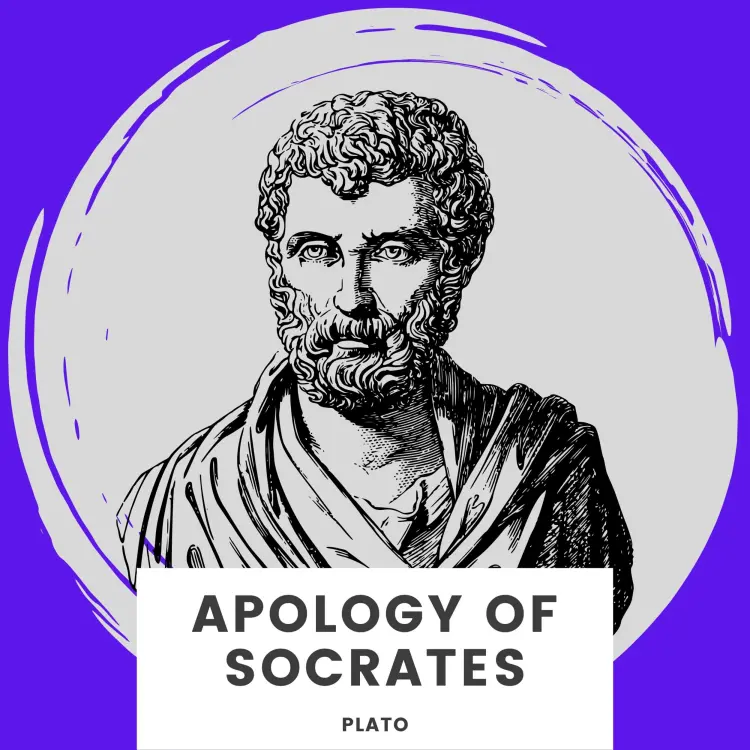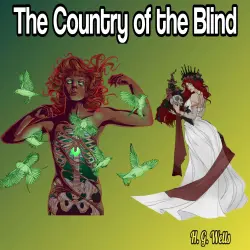
Apology of Socrates
Plato
Unabridged
1 hora 16 minutos
Nota: La reproducción de los audiolibros o de las obras de audio en las respectivas plataformas, por ejemplo Spotify, puede generar gastos. Lismio no tiene ninguna influencia sobre qué audiolibros y obras de audio están disponibles en el servicio.
Algunos artículos contienen enlaces de afiliados (marcados con un asterisco *). Si hace clic en estos enlaces y compra productos, recibiremos una pequeña comisión sin coste adicional para usted. Su apoyo ayuda a mantener este sitio en funcionamiento y a seguir creando contenidos útiles. Gracias por su apoyo.
De la editorial
The Apology of Socrates by Plato, is a Socratic dialogue of the speech of legal self-defence which Socrates (469-399 BC) spoke at his trial for impiety and corruption in 399 BC.
Specifically, the Apology of Socrates is a defence against the charges of "corrupting the youth" and "not believing in the gods in whom the city believes, but in other daimonia that are novel" to Athens (24b).
Among the primary sources about the trial and death of the philosopher Socrates, the Apology of Socrates is the dialogue that depicts the trial, and is one of four Socratic dialogues, along with Euthyphro, Phaedo, and Crito, through which Plato details the final days of the philosopher Socrates.
Introduction:
The Apology of Socrates begins with Socrates addressing the jury of perhaps 500 Athenian men to ask if they have been persuaded by the Orators Lycon, Anytus, and Meletus, who have accused Socrates of corrupting the young people of the city and impiety against the pantheon of Athens. The first sentence of his speech establishes the theme of the dialogue-that philosophy begins with an admission of ignorance. Socrates later clarifies that point of philosophy when he says that whatever wisdom he possesses comes from knowing that he knows nothing (23b, 29b).
In the course of the trial, Socrates imitates, parodies, and corrects the Orators, his accusers, and asks the jury to judge him by the truth of his statements, not by his oratorical skill (cf. Lysias XIX 1,2,3; Isaeus X 1; Isocrates XV 79; Aeschines II 24).
Socrates says he will not use sophisticated language-carefully arranged ornate words and phrases-but will speak using the common idiom of the Greek language. Socrates says that he will speak in the manner he has used in the agora and at the money tables which he states is his native tongue and the fashion of his country.
Specifically, the Apology of Socrates is a defence against the charges of "corrupting the youth" and "not believing in the gods in whom the city believes, but in other daimonia that are novel" to Athens (24b).
Among the primary sources about the trial and death of the philosopher Socrates, the Apology of Socrates is the dialogue that depicts the trial, and is one of four Socratic dialogues, along with Euthyphro, Phaedo, and Crito, through which Plato details the final days of the philosopher Socrates.
Introduction:
The Apology of Socrates begins with Socrates addressing the jury of perhaps 500 Athenian men to ask if they have been persuaded by the Orators Lycon, Anytus, and Meletus, who have accused Socrates of corrupting the young people of the city and impiety against the pantheon of Athens. The first sentence of his speech establishes the theme of the dialogue-that philosophy begins with an admission of ignorance. Socrates later clarifies that point of philosophy when he says that whatever wisdom he possesses comes from knowing that he knows nothing (23b, 29b).
In the course of the trial, Socrates imitates, parodies, and corrects the Orators, his accusers, and asks the jury to judge him by the truth of his statements, not by his oratorical skill (cf. Lysias XIX 1,2,3; Isaeus X 1; Isocrates XV 79; Aeschines II 24).
Socrates says he will not use sophisticated language-carefully arranged ornate words and phrases-but will speak using the common idiom of the Greek language. Socrates says that he will speak in the manner he has used in the agora and at the money tables which he states is his native tongue and the fashion of his country.








